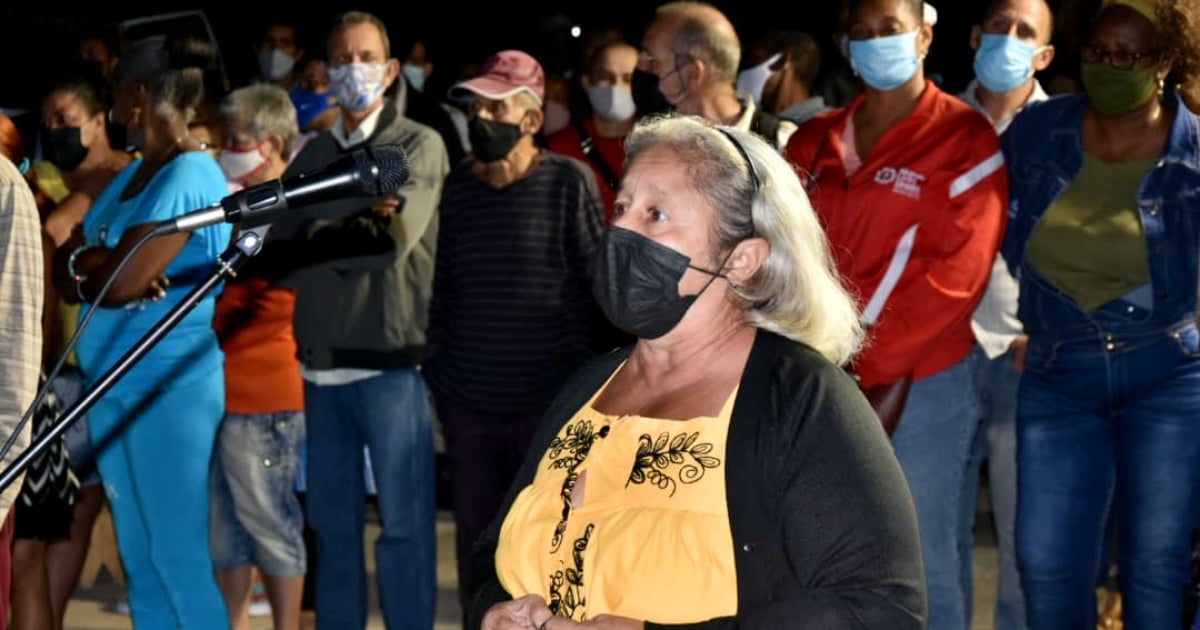
The State Council convened the accountability process for the delegates to their electors, scheduled from September 20 to November 15, 2024, throughout the country.
Homero Acosta Álvarez, secretary of the National Assembly of People's Power (ANPP) and of the State Council, explained that this will be the first process in the current mandate of the Municipal Assemblies, after the State Council's decision to postpone it in 2023 "due to lack of fuel," as justified by the Cuban regime.
Acosta Álvarez emphasized the importance of the continuous exchange and dialogue between the delegates and the constituencies that elected them. This process actively involves mass organizations, local administrations, managers, and the population.
Before the accountability exercise, delegates will be asked to join the preparation of the process directly, being released from their usual duties. In addition, a call will be made to the deputies of the National Assembly to join the work in the territories, thus ensuring the highest possible quality during this stage.
The accountability is presented by the Cuban regime as a way for the people to participate in the exercise of government. However, the population perceives the process as a formality that they attend to "not draw attention," and in which the supposed dialogue with the delegate is little more than a political charade.
The spirit of the population and the postponement of the previous exercise.
Agreement 70-X of the State Council, adopted on October 9, 2023, postponed the rendering of accounts process to the first quarter of 2024.
To address this, the document included several actions, mainly the release of work duties for the delegates whose tasks allowed it, for the remainder of 2023, with the aim of increasing their connection and ongoing attention to voters, as well as providing them with necessary information.
Out of the 12,429 delegates to the municipal assemblies, 9,901 were released from their work duties, representing 79.6% of the total; among them, 5,285 were released full time and 4,616 part-time, in order to attend to their responsibilities. 2,392 were not released, including the managers of the municipal assemblies and other delegates whose responsibilities did not allow them to be released.
Between October 15 and December 31, 2023, the delegates released from their work responsibilities throughout the country reached direct exchanges with over 2,500,000 voters, according to Acosta.
The Secretary of the National Assembly of People's Power stated that this enabled receiving 86,755 proposals, of which 74.9% could be resolved. In addition, 69,734 supervision actions were carried out on local service-providing entities during this period.
However, the population's perception in the two years since the last elections is that the delegates have repeated the usual behavior in their roles within the Cuban regime: voting unanimously and justifying socio-economic problems with the usual arguments dictated by the Palace.
Taking into account the situation our country is going through, concerning power generation, fuel usage, and the impact on vital services for the population, which could affect the fulfillment of the objectives of the aforementioned accountability process; the State Council has decided to postpone its realization to the first quarter of next year," stated the official communication after making the decision due to the severe fuel crisis affecting the country.
But Cuba's independent civil society interpreted the suspension differently, attributing it to the heightened tensions of the population in times of frequent power outages and exacerbated shortages of food and basic services.
Considering that the situation and the mood of the population have not changed substantially, and that it is a process already burdened for years by the routine and disinterest of citizens in participating in the call, many wonder if the current conditions are conducive to holding assemblies.
Mixed opinions on citizen participation
The authorities' call comes after a group of civil society organizations, under the alliance Accountability Now, sent a letter to Parliament last February demanding the holding of the meetings, which had already been suspended twice.
Accountability meetings are seen by some as a limited opportunity for the population to express their opinions to the representatives of the regime. In statements to Martí Noticias, Frank Abel García, executive vice-secretary of Candidates for Change, considered that the meetings "represent the only minimally democratic space that the population has to express their opinions to the representatives of the regime."
However, he emphasized that it is "a very restricted space in which even those who openly oppose the regime are denied participation, but it remains the only one that the population has to express their opinions to those who represent the interests of power."
García considered that the country's crisis, the massive exodus affecting hundreds of thousands of broken families, and the prevailing hopelessness could be favorable for accountability assemblies to become true centers of citizen complaints.
On the other hand, the president of the Permanent Commission of Work of Local Organs in the National Assembly of People's Power (ANPP), Miriam Brito Sarroca, stated that the accountability of the delegates to their constituents is of great importance because it allows the constituents to know, evaluate, and voice their opinions on the performance of their representatives during a specific period.
However, the opposition member Martha Beatriz Roque Cabello stated that these assemblies do not solve anything and that Cubans still fear speaking out openly.
After the historic outbreak of July 11, 2021 (11J), Cubans consider citizen protests more effective, which have since become frequent, both in the streets and in front of the offices of the People's Power, the Communist Party of Cuba, and other government structures.
What do you think?
COMMENTFiled under: